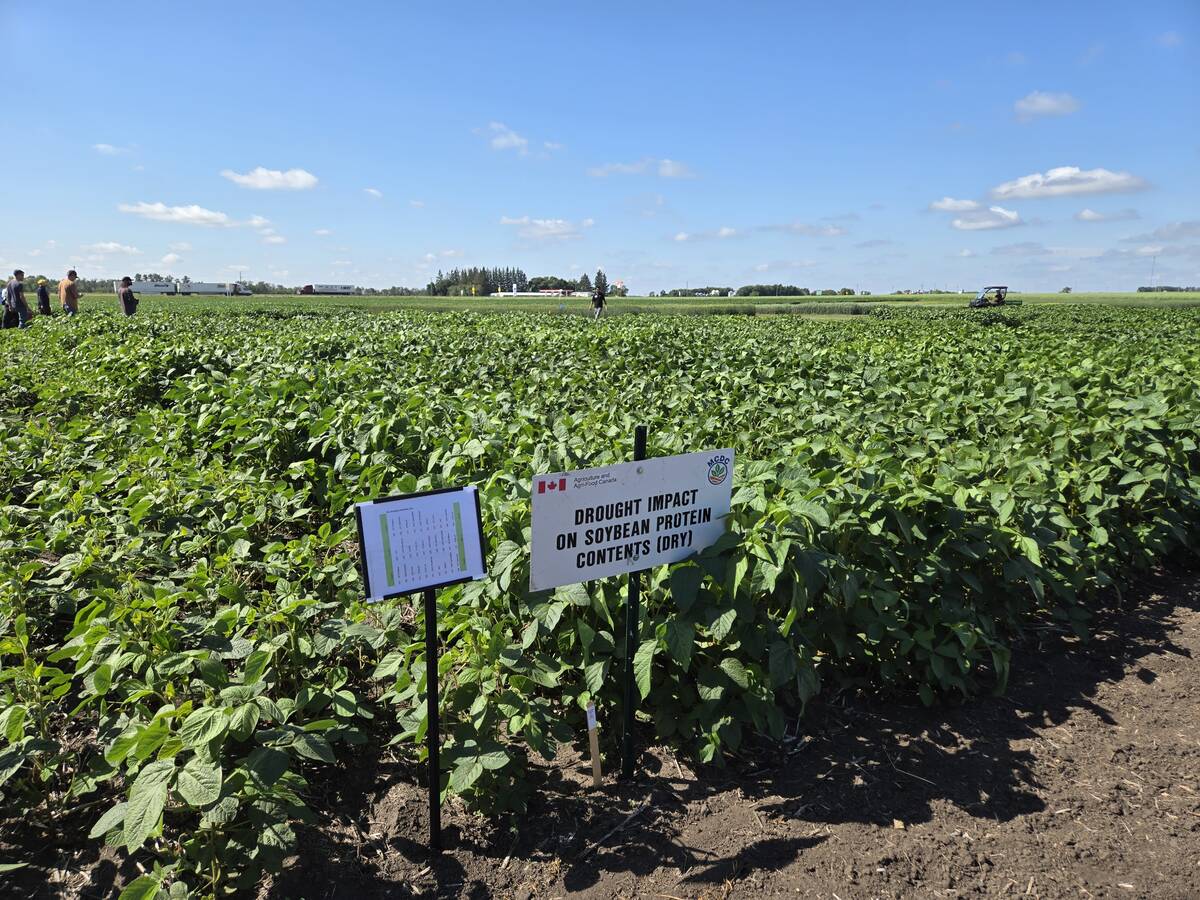SPIRITWOOD, Sask. – Keep it small and keep it local.
That could stop land claim settlement talks from degenerating into shouting matches and nasty allegations of racism between farmers and Indians, say some people who settled a recent claim.
“If the band and the (farmers) work together, without the political crap, you can get a workable deal,” said Spiritwood farmer Grant Cadieu, who helped get a deal in which the Witchekan Lake Indian band will take over the Bapaume community pasture.
It took until 1997 for the band to realize its long-held goal of reclaiming the pasture, which is mostly land the band should have had since 1913. But it took the band decades to get the federal government to admit the land had been wrongfully taken away, and two decades to convince the local cattle producers who used the pasture to agree to the transfer.
Read Also

Carberry field day looks for agriculture solutions
Manitoba farmers explored research solutions for resilient crops, perpetual agronomic issues and new kinds of agricultural products at a field day at the Manitoba Crop Diversification Centre in Carberry on Aug. 6.
Cadieu said the key to the Bapaume deal was getting band members and ranchers to talk to each other about their concerns on an individual basis.
Public meetings were frustrating for many of the farmers, Cadieu said, because criticizing the band’s attempt to buy the pasture could have been portrayed as being anti-Indian.
“When you went to a meeting you almost had to say ‘Look, I’m not racist, but these are real concerns,’ ” said Cadieu.
Some television news stories suggested the ranchers opposed the band taking the pasture because they didn’t like Indians. That made the cattlemen feel they couldn’t publicly defend their legitimate interests without being tarred as racist, Cadieu said.
David Minor, a Treaty Land Entitlement official who organized the producer vote in 1997, said large public meetings can sometimes derail negotiations rather than bring people together.
“Certain individuals do most of the talking (in public meetings). Usually the ones who talk, prevail,” said Minor. “The ones doing the loudest talking were the ones most opposed.”
Minor, who was not at the meetings, said he was brought in because the band and the pasture patrons had reached an impasse. With the opponents of the deal speaking most strongly, “the rest didn’t want to go against the grain.”
Instead of more large meetings, Minor helped arrange one-on-one talks between each rancher and members of the band.
“That structure allowed the band and patrons to examine it in an unemotional way,” he said. “It was important to keep the tenor on a constructive basis and stop it deteriorating into a shouting match.”
Minor acknowledges the early public meetings were essential so all the pasture patrons could have their say and learn why the Witchekan Lake band wanted the land. But after that it was necessary to give all people, not just the most vocal opponents, a chance to speak.
“You have to emphasize the centre and forget the edges. Extremists don’t count, on either side. They’re not going to provide you with a solution,” said Minor. “The good, solid, considerate people in between those two extremes will provide you with the window to success.”
Minor said even though the Treaty Land Entitlement agreement was made by the Saskatchewan and federal governments on a high level, local people need to understand the real deals are made between neighbors.
“The onus is on them to negotiate the best agreement they can. They have a responsibility to look after their own affairs.”
And resolving local claims needs to be done, Minor said.
“They can’t stonewall it and they can’t stop it, because our senior governments decided the time has come to bring this thing to a close.”
Cadieu said he was keen to minimize the role of the provincial government and the Federation of Saskatchewan Indian Nations, “because when they get their hands on it, it becomes political … . I think working with the band is the way to go.”
Minor said at the beginning he did not expect the cattlemen and the band to reach a deal, but was pleasantly surprised.
“These were two groups of people that had not necessarily had very much to do (with each other) in the past. They had strong cultural differences, but were getting together and trying to find some common ground.”















